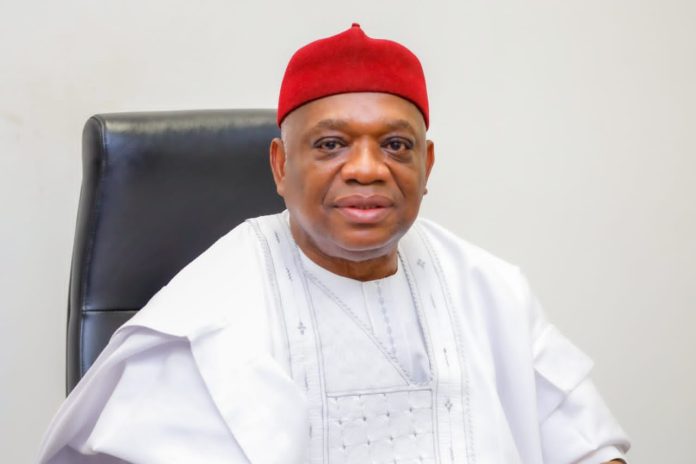THE Nigeria Civil Aviation Authority (NCAA) has dismissed recent claims by Senator Orji Uzor Kalu alleging that some Nigerian pilots operate aircraft under the influence of substances, describing the assertion as false, misleading, and damaging to the reputation of the aviation sector.
In a detailed statement signed by the Director General of the NCAA, Captain Chris Najomo sent to News Point Nigeria, the agency reaffirmed its unwavering commitment to global aviation safety standards, emphasizing that all pilots in Nigeria are subjected to rigorous certification, medical, and fitness evaluations before being cleared to operate any aircraft.
“No pilot is permitted to operate a Nigerian-registered aircraft without holding both a valid pilot licence and a current medical certificate, as required by the Nigeria Civil Aviation Regulations (Nig. CARs),” the statement said.
Captain Najomo noted that holders of Commercial Pilot Licences (CPL) and Airline Transport Pilot Licences (ATPL) are legally required to maintain Class 1 Medical Certificates, the highest standard of medical certification in the profession.
“These medical certificates are issued only after comprehensive aero-medical evaluations by NCAA-Authorised Aviation Medical Examiners (AAMEs), and subsequently reviewed by our in-house aero-medical assessors,” he explained.
The evaluation process, Najomo added, covers cardiovascular, neurological, psychological, metabolic, respiratory, and visual assessments, ensuring that every pilot is physically and mentally fit to fly.
He cited Nig. CARs Part 2.11.2.6(b), which outlines the physical and mental health benchmarks that must be met before a medical certificate is granted.
Routine Medical Checks and Field Inspections
The NCAA clarified that pilot medical certificates are renewed annually for pilots below 40 years old and every six months for those aged 40 and above.
In addition to scheduled renewals, the authority also conducts frequent ramp inspections at airports nationwide to verify crew licenses, medical certificates, and general operational fitness.
“We operate a zero-tolerance policy for any form of impairment or safety breach. Any pilot found violating safety rules faces immediate enforcement action,” Najomo said, adding that the NCAA recently suspended a pilot’s licence for breaching operational safety protocols.
Reacting to misconceptions about automation in aircraft operations, the NCAA boss clarified that despite advanced cockpit technologies, pilots remain fully in control of every flight.
“Takeoffs are manual operations, and autopilot systems are typically engaged only after the aircraft is airborne. Landings are also manually executed except under specific weather and airport conditions,” he explained.
Najomo maintained that Nigerian pilots are among the most strictly regulated professionals in the country, undergoing continuous training and recurrent checks to ensure peak proficiency and safety compliance.
The NCAA condemned what it called unsubstantiated public commentary capable of eroding public confidence in the aviation system.
“Our commitment to passenger safety is total. Nigeria’s aviation safety record has continued to improve because of the vigilance, professionalism, and strict compliance culture we uphold,” Najomo stated.
The authority urged members of the public, including political leaders and influencers, to verify sensitive information with the NCAA before making public pronouncements that could cause unnecessary alarm.
Najomo reassured air travellers that Nigeria’s skies remain among the safest in Africa, thanks to the agency’s proactive oversight, ongoing audits, and close collaboration with international regulatory bodies.







